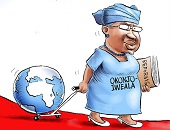Decarb Economics 101
To mitigate the consequences of climate change, the world requires international coordination. In 2015, the Paris Agreement was signed by 195 nations. Its long-term temperature goal is to keep the rise in mean global temperature to well below 2 °C (3.6 °F) above pre-industrial levels, and preferably limit the increase to 1.5 °C (2.7 °F), which would reduce the worst effects of climate change. Many countries are developing policies to get themselves on a path toward achieving the agreed-upon 1.5 °C goal. Although present progress may seem piecemeal, in the words of a Chinese proverb, “A great journey begins with a single step.” The figure below […]
Update on the Jab
It’s a truism: bad health of the population, bad economy. What then is happening globally in the Covid-19 pandemic? When will things return to normal? The pandemic continues to rage in various parts of the world, affecting both developed and emerging markets. On July 7, 2021, The Economist, a magazine that has been running stories on vaccines and the Covid-19 pandemic each week, sponsored a webinar featuring an editor and correspondent on the pandemic beat. Natasha Lode, health policy editor at the Economist, highlighted some recent issues. She is also host of the Economist’s podcast The Jab, whose tagline reads, […]
WTO: The Jabs and the Jab-Nots
As the covid-19 vaccines continue to be rolled out across the world, and as trade disputes continue to fester, Ngozi Okonjo-Iweala has her work cut out for her as the new director-general of the World Trade Organisation (WTO). With many years’ experience in politics, economics, and vaccine production, she already has a deep understanding of the issues. On June 29, 2021, she spoke with Zanny Minton Beddoes, editor-in-chief of the magazine the Economist, about ending the covid-19 pandemic and the future of globalization. Ngozi described herself as a “trade outsider” when she first began at the World Bank, “which has […]
Embrace the Alternative
In the world of finance, investors are constantly searching for new sources of information that could help them generate alpha. Many of them have recently turned to alternative data. But what, exactly, is alternative data? And why should investors (and those seeking a career in finance) care about it? On February 17, 2021, the Professional Development Committee at CFA Society Toronto convened a panel discussion to demystify the alternative data industry. Alexandra Zvarich, representing the committee, questioned the panellists about insights they could share, and how to prepare for a career in this area. “We worked with alternative data before […]
The Achilles Heel of Banking
After last decade’s financial crisis, regulators introduced several new measures to reduce systemic risk in the financial system. How are the new safeguards working? What are the implications for future balance sheet structure? The CFA Society Toronto convened a panel of three experts on November 25, 2020, to discuss the new regulatory capital and liquidity frameworks and how they are reshaping the way Canadian banks approach the market. The webinar, including a Q&A session, was moderated by Nigel D’Souza, Investment Analyst, Veritas Investment Research. “There’s no doubt the financial crisis changed balance sheets,” said Bruce Choy, Managing Director (Former Risk […]
Shadow Banking in China
Shadow banking has enjoyed extraordinary growth over the past decade, especially in the emerging markets of China. The implications were discussed in the webinar “Shadow Banking: Standing at the Precipice?” sponsored by the Global Association of Risk Professionals (GARP) on August 6, 2019. Cindy Li, a Greater China analyst of the Federal Reserve Bank of San Francisco, was the second of two speakers at the one-hour GARP webinar. She said the shadow banking system in China has evolved to a fairly large group of powerful competitors, but that has led to “a build-up of risk” as China’s economic growth slows down. First, […]
Standing at the Precipice?
What is shadow banking, and are the associated risks being properly mitigated? A summary of issues can be found in the webinar “Shadow Banking: Standing at the Precipice?” sponsored by the Global Association of Risk Professionals (GARP) on August 6, 2019. Fabio Natalucci, Deputy Director, Monetary and Capital Markets Department of the International Monetary Fund (IMF), was the first of two speakers at the one-hour webinar. He began by explaining that the shadow banking system prefers to be thought of in “less sinister” terms as “non-bank financial intermediaries” that provide services similar to, but outside of, the regular banking system. He described […]
Barcodes of Finance 4
7. Will blockchain technology affect the drive toward barcodes? It most definitely should—and in a positive way. The maintenance of a distributed database of identifiers, both for participants and products traded throughout the global financial supply chain is the easiest global blockchain infrastructure application to be developed. A global database of all the world’s participant and product identifiers, maybe a half billion records, is limited in scale, both as to data recorded in its distributed ledger and in its limits of processing speed—seconds required, at the most. Both parameters of speed and scale are well within the boundaries of current […]
Barcodes of Finance 3
5. Great, the G20 set up the Financial Stability Board to set things straight. So, what’s the problem? It was thought by all that “regulatory compulsion” at such a global level, overseen by the world’s most prominent collection of leaders of the largest economies, would finally solve the collective action problem that stymied the industry from doing this on their own. Industry members could not justify stepping aside from each firm’s own self-interest in maintaining the status quo. It would be costly to re-engineer legacy systems built in convoluted increments over the previous six decades. Everyone without exception wanted to […]
Barcodes of Finance 2
3. What allowed non-standard transaction date to persist and what was your response? I had spent my whole career in various sectors of finance and as an advisor to many financial institutions as a consulting Partner with PwC, responsible for the Financial Services sector. I saw the same sets of transaction data described differently in each firm, even though they would need to match perfectly between firms in order to confirm the transaction with the counterparty and either receive payment or pay for it. This disorder was managed by delaying the payment until all the details were reconciled, first by […]










